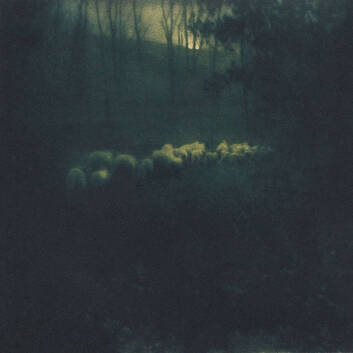
Review by: The Administrator
The first time I heard this album was not a standard listening experience. It was nighttime, and I was walking through miles of vaguely unfamiliar neighborhoods en route to my car, which was parked--abandoned, out of necessity--on the street with a flat tire. It was blizzarding with a slow fury, the kind of dense snow that doesn't fall violently, but rather languidly, with full knowledge of the incalculable weight of its component parts. A vehicular retrieval mission was in order, but, with the full realization that the next few days would inevitably be defined by the encroaching snow-in, there was not exactly a sense of urgency. Hence: a perfect time to crank some tunes most foreboding. Enter Ancestral Memory, a split album by the enigmatic The Sun Came Up Upon The Left and the gloriously (astoundingly? frighteningly?) prolific Everson Poe. Needless to say, a suitably significant impression was left with me in the dark and the snow. Indeed, I recently described this stellar release as "one of my very favorite albums of the year thusfar." Given the sheer quantity of quality music that rings through these humble halls, I hope that designation carries some sort of weight. Ancestral Memory represents a brilliant meeting and melding of minds, the result of which is a harrowing, crushing, and otherwise (tastefully) overwhelming experience. It's a delicate and paradoxical balance between chest-crushingly beautiful and chest-crushingly depressive. While any attempt at genre categorization is fraught with peril--more on that later--a good ol' F(or) F(ans) O(f) goes a long way in terms of helping navigate the waters. On this particular subject, promo material namedrops Thou, Oathbreaker, Amenra, Un, Kowloon Walled City, Mizmor, Vile Creature, Windhand, and Subrosa--a list of heavy hitters if I've ever seen one. Ancestral Memory does not sound like a product of these artists per se, but the thematic and aesthetic approach is notably similar across the board: sweeping and emotive soundscapes, heavy on the atmosphere and the introspection.
0 Comments
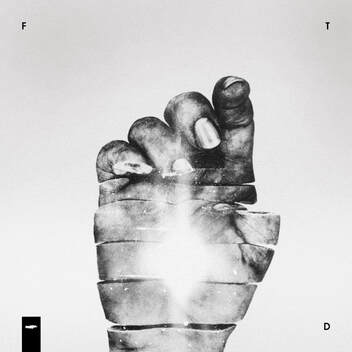
Written by: The Voiceless Apparition
This goes without saying, but I'd imagine that you, the reader, love extreme music. But extremity is a subjective topic, it could be born of a vocal style, a style of instrumentation--perhaps lyrics as well. But there are many other ways to explore and express extremity. That leads us to the review in hand. Feed Them Death is an extreme metal project blurring the lines of audial savagery: grindcore, death metal, black metal, doom, noise, and ambient. This project has been releasing a substantial amount of material in such a short amount of time with there being only a one year gap in between the debut album and previous album Panopticism: Belong/Be Lost. In 2021 the musician known as Void returns with his latest album Negative.
In the rush to cover the constant waves of new music, we all too often neglect discussing the releases that leave the most substantial impressions in our lives. As such, we recently invited some bands and artists to wax poetic about an album that was deeply impactful or influential to them, either musically or personally. The next guest in line to graciously offer a retrospective in this series is one Erin Palmer, sole member of raw black metal outfit Dread Maw, as well as raw black metal/black n' roll entity Rage of Devils. Once yer done reading this retrospective, check out both projects!
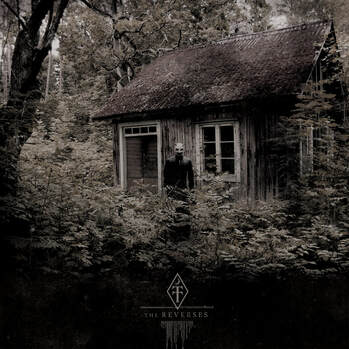
Written by: Erin Palmer
I went through several years where, for multiple reasons, I wasn't enjoying metal. One of the hallmarks of OCD is intrusive thoughts. Irrational thoughts that come into your head out of nowhere, but feel so gut-wrenchingly real that you can't help but give them credence. Mine started in 2011, and they told me that I wasn't “allowed” to like metal. Simply saying that doesn't convey the fear that came with those thoughts. It was a sick feeling in my stomach that I was doing something wrong by listening to metal. It wasn't based in anything real; no religious background was responsible, for example. My head just told me that I wasn't allowed to listen to my favorite music, and my insides turned to water. 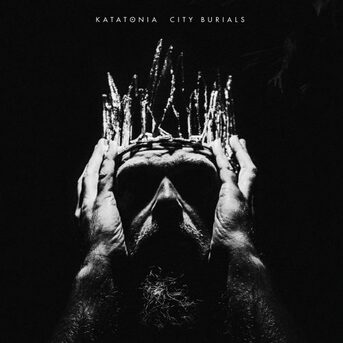 Written by: Loveloth How does a band evoke the feelings of melancholy? The approach varies from genre to genre, but using the minor scale is a definite foundation. After that anything is game, and as a result, any sadboi--like yours truly--has a plethora of options to choose from. The most extreme examples are the DSBM and adjacent black metal genres. There, melancholy manifests through anguish and despair. Tremolo picking, shrieks and blast beats reign as lords, whereas on the opposite side of the spectrum, such as on the notorious pop ballads, we've got clean vocals covered by electronic-based instrumentation with slower paced beats. I personally don't have any emotional responses when I hear most of that type of stuff due to how they're manufactured and how much they rely on cheap motifs. I realized this when I was a wee lad and as time went on, I searched far and wide for music to comfort, help me contemplate, and of course cope with any hardships I came across. At one point in time, I found myself listening to “Lethean” by Katatonia via a great YouTube recommendation, remember those? I was stunned with its energy and heaviness, and by the time Jonas Renkse's vocals kicked in, I was hooked. To this very day, Dead End Kings remains my favorite album by them and I would honestly put Katatonia right next to Opeth and that dude Devon Townsent as my go-to sadboi band. In the rush to cover the constant waves of new music, we all too often neglect discussing the releases that leave the most substantial impressions in our lives. As such, we recently invited some bands and artists to wax poetic about an album that was deeply impactful or influential to them, either musically or personally. The fourth in this (increasingly popular, apparently!) series of guest reviews is Forest Bohrer of Adzes--who, incidentally, just put out a very good album that you can read about here. Read on! Written by: Forest Bohrer Time brings them all home To the eye of every storm 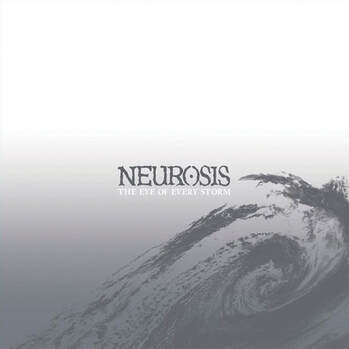 Upon the landscape of heavy music, Neurosis looms. The Oakland-based collective has produced a slew of landmark records through the decades, influencing multiple generations of musicians and spawning entire genres of like-minded bands. Their most well-known record is the apocalyptic machine that is Through Silver In Blood, a sprawling seventy minutes of oppressive darkness. And yet, when I think of Neurosis records that had the profoundest influence on my life, 2004’s The Eye of Every Storm is the record I return to. At the turn of the 21st century, the band had just delivered Times of Grace, a masterpiece perhaps even surpassing Through Silver In Blood in emotional weight and crushing sludge. And rather trying to reach the great heights of Times, or the depths of companion EP Sovereign, the band turned to a more contemplative, organic approach. A Sun That Never Sets and its successor The Eye of Every Storm featured gravelly singing, acoustic guitars, cellos, complex harmonies, and matured songwriting, but are no less weighty than other Neurosis albums for that. 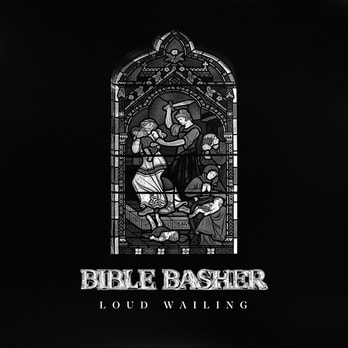
Written by: Volt Thrower
Being born into a bible bashing religious cult/family is a traumatizing experience for a curious child. Something I've only started to fully grasp after countless hours and thousands of dollars in therapy. So when I saw the press release for a Bible Basher record featuring Tich of Temple of Coke, Joe E. Allen of Kurokuma and the doom doc featuring the UK underground, plus members of Archelon and Spaztik Munke, I knew I had to have it. I purchased a cassette copy instantly, I don't even own a tape player but I guess I'm on the lookout for one now. Scathing, sacrilegious, supergroup sludge from Sheffield, UK, is exactly what the doctor ordered for this 2020 hellscape. “Words from the bible, riffs from hell.” 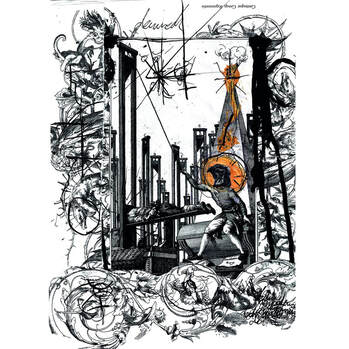
Written by: Alex, Bringer of Payne
Forest Boher, the single member of Adzes, is rather angry on No One Speaks About It. In this case, “it” represents the broad threats that existentially threaten our societies as we know them, from unaddressed climate change to rampant poverty, and his anger is directed exclusively at the elusive 1% that maintain an inescapable influence over all of our lives. Accompanying his ominous message is a thick soundscape of sludgy, shoegaze-influenced metal. The project opens with "Divide," a sludgy, downtuned track that’s driven by a melancholic, undulating bassline. Swirling vocals haunt the instrumentation, insistently questioning the world’s borders and the lack of compassion that is required to uphold them. As an introduction it’s stellar, for it showcases the sonic and political tone candidly; if you dislike this track, for whatever reason, there’s no need to go any further. "Jesus Built My Death Squads" follows suit, although sonically, it’s a little brighter with a needling guitar riff that reoccurs. This track is perhaps the closest that Boher strays into the mainstream, and is one of many highlights that are littered throughout the project’s tracklist. 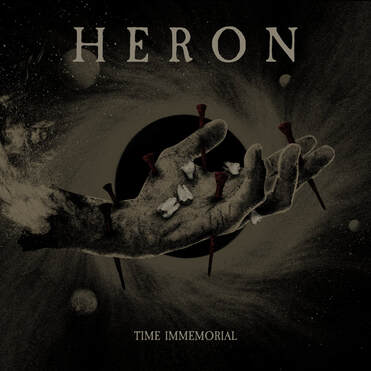
Written by: Volt Thrower
Old sticky beer gripping the bottom of my shoes. Sweaty dudes bumping into me. The crushing weight of Tatsu Mikami’s bass tone laying waste to my chest cavity. Was it all a dream? The last show I went to in the pre-pandemic times was Church of Misery in February, less than three months ago, but it feels like it's been at least three years. The concept of time of has become a black hole since ~March 13th. Anything prior to that date genuinely feels like it's beyond the grasp of memory or record, i.e. Time Immemorial. We’re in unprecedented times, people feel hopeless. Canadian sludgers Heron build atmosphere on the back of hopelessness, and deliver perhaps the most relevant release of 2020. 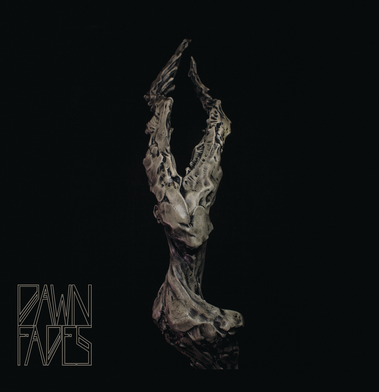 Post-metal is an intrinsically fickle beast. While a more forgiving genre such as sludge or death can exist--and flourish--simply on the merits of its particularly bombastic nature, post-metal consistently toes a line between repression and expulsion. While this particularly sleepy-eyed Village isn’t that well versed in the post-metal ‘verse, I do know this: a band must walk that line with grace, displaying both self-reflective ambiance and explosive catharsis, the inevitable result of an emotional and sonic bottleneck. How, then, does the band in question handle to pressure? Dawn Fades are a mighty quintet based out of LA, and prior to their debut, the reputable immersive nature of their live performances served as a calling card. While this may be their first release, these fellas are markedly professional and mature in their craft. I’m happy to report that when Dawn Fades commits to emotive bombast, they blow the walls out. While these moments of catharsis are few, they define the album’s ability to maintain interest and immersion. Buildup is everything, and Dawn Fades’ true strength is their ability to maintain interest through the more ambient, acoustic, and otherwise gentle passages, while simultaneously knowing how and when to strike without isolating or boring their audience. If that isn’t a success story, what is? Gentle and often near-elusive guitar sets the stage, and well-considered use of cleans and harshly blackened rasps provide a barometer for intensity. None of this feels contrived or--gasp--overly academic. Take the periodic brief pauses in instrumentation on Ashes, a track that slowly grew to become a favorite. While another band might have used this as a chance to showcase an animistic screech, or another suitably violent vocal exorcism, Dawn Fades elects for a subtle silence. In interrupting the pattern, it helps the song as a whole catch an (occasional) jagged breath. As a result, attention is focused. Quite smart. Moments like this, which frequent the album, seem particularly well constructed for a live environment, where the audience can be pulled and manipulated through a tangible atmosphere. From a critical perspective, the drums, which significantly define the motion of the album throughout, could use more heft--while light on their feet, they generally lack punch. That said, the crunchier tracks--such as lead single Freeze--feel particularly massive in comparison. More concretely, the utilization of lyric-less cleans in Shackle seem slightly out of place given the prior sophistication of atmospherics. Considering the overall achievement here, minor complaints. On a personal level, Dawn Fades was very much worth the expedition into unfamiliar genre waters. If you are a fan of post-metal--or perhaps similarly uninitiated--this debut will undoubtedly prove an intriguing and satisfyingly immersive experience. Dawn Fades will be released February 8th from Metal Assault Records. In the meantime, we here at the Sleeping Village highly recommend you bend your ear in the direction of Lean and Freeze. Solid singles both, and a strong introduction to Dawn Fades’ uniquely precise line in the sand between introspection and violent spectacle. |
Welcome!
We provide thoughtful reviews of music that is heavy, gloomy...and loud enough to wake us from slumber. Written by a highfalutin peasantry!
|
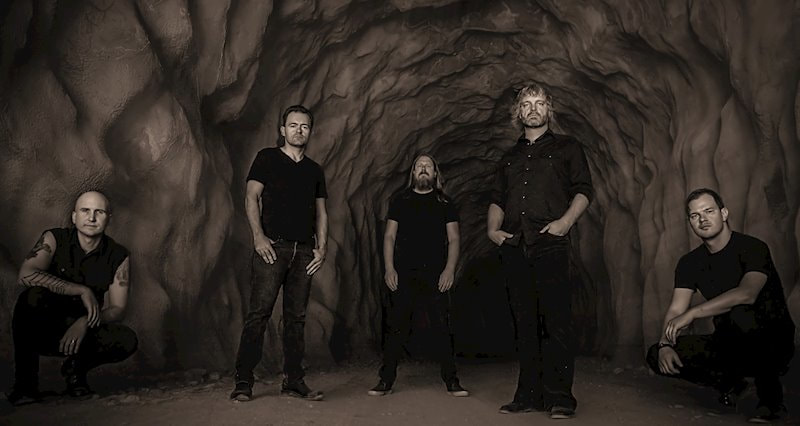
 RSS Feed
RSS Feed